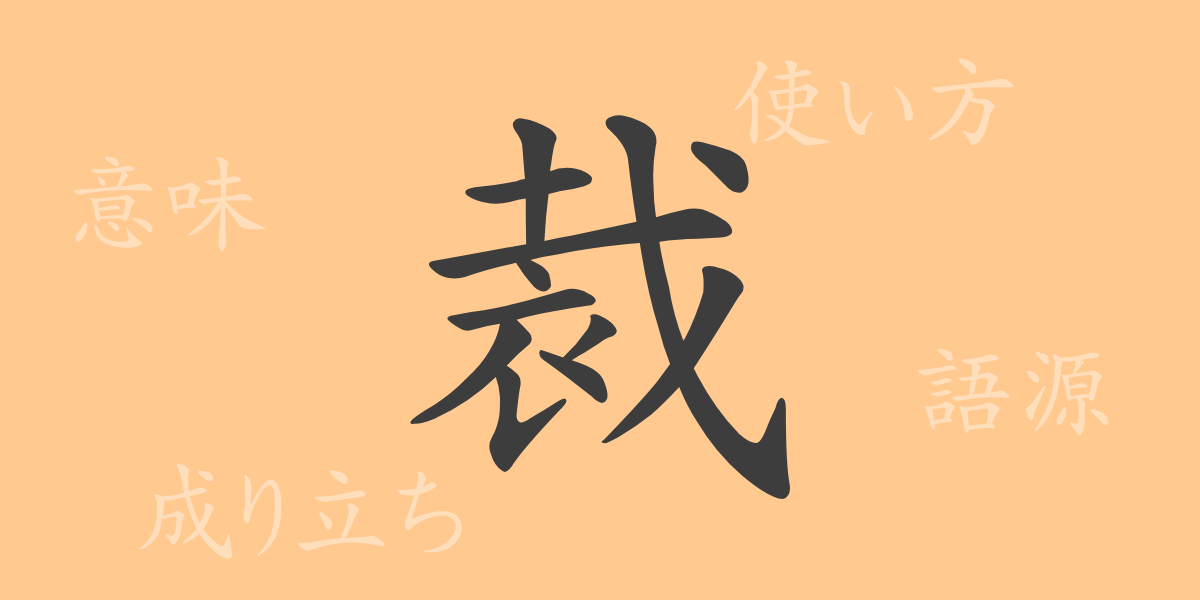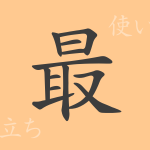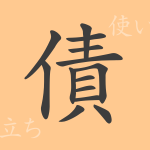The beauty of the Japanese language is reflected in its characters. Each kanji carries deep meanings and is closely connected to Japanese life and culture. This time, let’s delve into the charm of the common-use kanji “裁” (sai). Although “裁” (sai) is a kanji frequently used in daily life, few people might be aware of its origins and various usages. This article will broadly explain the origin, meanings, usages, and idioms involving “裁” (sai).
Etymology of 裁 (sai)
The kanji “裁” (sai) is formed by combining the pictograph “衣” (koromo, meaning clothing) and “斤” (kin, meaning to cut). This combination gives rise to the basic meaning of “裁つ” (tatsu), which means “to cut” or “to tailor” clothing. Over time, the act of裁く (sabaku) evolved to encompass not just clothing but also judging and deciding the merits of matters.
Meanings and Usages of 裁 (sai)
The kanji “裁” (sai) primarily means “to judge,” “to decide,” and “to adjust.” In the legal field, it is used in words like “裁判” (saiban, trial), which refers to the act of judicial judgment and justice. In everyday conversation, it is used in expressions like “自らを裁く” (mizukara o sabaku), meaning to judge one’s actions or decisions. These usages convey the authority and responsibility that “裁” (sai) embodies.
Reading, Stroke Count, and Radical of 裁 (sai)
The kanji “裁” (sai) has various readings in Japanese.
- Reading: In the on’yomi reading, it is “サイ” (sai), and in the kun’yomi reading, it is “たつ” (tatsu) and “さばく” (sabaku).
- Stroke count: “裁” (sai) has 12 strokes.
- Radical: The radical is “衣” (ころもへん, koromo-hen, meaning clothing).
Idioms, Phrases, and Proverbs Using 裁 (sai) and Their Meanings
There are many idioms, phrases, and proverbs in Japanese that include “裁” (sai). Here are a few examples:
- 裁判 (さいばん, saiban): A court trial, where legal judgments are made.
- 自裁 (じさい, jisai): Judging one’s own actions.
- 裁量 (さいりょう, sairyou): The authority to make free judgments or decisions.
These words are frequently used in everyday life and business scenes in Japan.
Conclusion on 裁 (sai)
The kanji “裁” (sai) has been used in many contexts from its origin to the present day. It started with tailoring clothes and evolved to play an important role in judging and deciding matters. In Japanese law, culture, and daily communication, “裁” (sai) is an indispensable character. We hope this article has deepened your understanding of the meanings and usages of “裁” (sai).

























